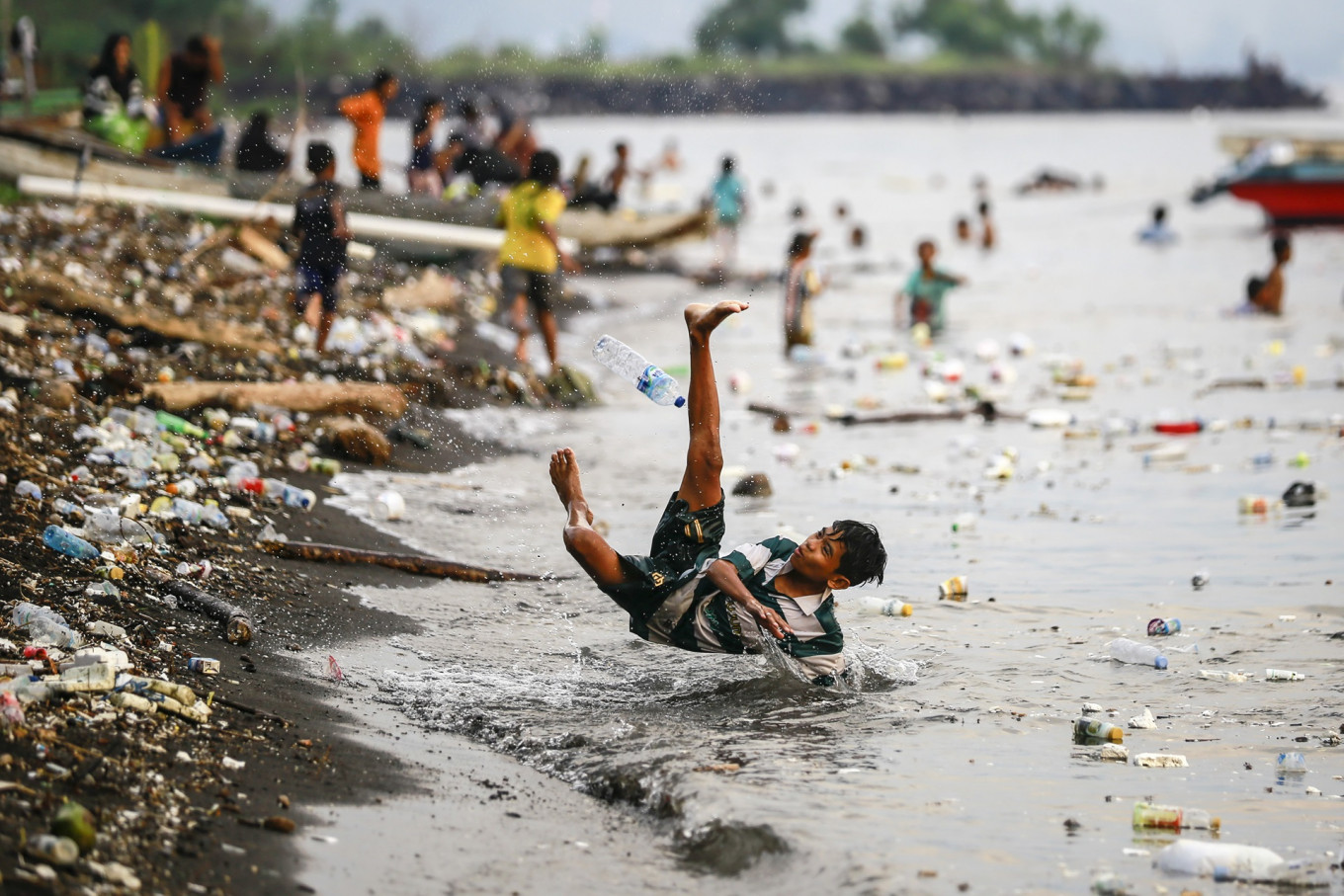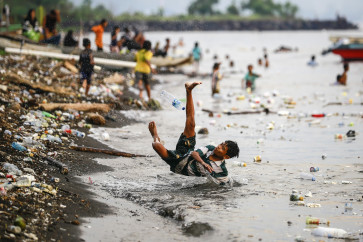Popular Reads
Top Results
Can't find what you're looking for?
View all search resultsPopular Reads
Top Results
Can't find what you're looking for?
View all search resultsWhy a UN plastics treaty matters for climate change and Indonesia
Without binding national commitments, a global cap risks becoming another weak agreement, postponing real action on the ground.
Change text size
Gift Premium Articles
to Anyone
T
he fifth and final session of the UN’s Intergovernmental Negotiating Committee on Plastic Pollution (INC-5) from Nov. 25 to Dec. 1 in Busan, South Korea, was meant to finalize and approve an international legally binding instrument on plastic pollution, including in the marine environment.
Plastics are deeply intertwined with fossil fuel consumption and greenhouse gas (GHG) emissions. Tackling plastic production and disposal result in pollution mitigation and emissions curbing.
A successful Global Plastics Treaty (GPT) has important implications for climate change. However, INC-5 ended without delivering a treaty to address the looming crisis.
Despite shortcomings, progress was still made toward this aim. Members negotiated two documents by the INC chair, Ambassador Luis Vayas Valdivieso, before agreeing on the closing day to transmit the chair’s text to a resumed session in 2025.
Next year, delegates must address key issues head-on, starting with a cap on global plastic production paired with binding national targets. Tackling plastic pollution requires action at the source. Without binding national commitments, a global cap risks becoming another weak agreement, postponing real action on the ground. To prevent further environmental and health crises, the treaty must also ban hazardous chemicals and other chemicals of concern.
The treaty must also include robust governance and enforceable trade measures. It should establish mechanisms to monitor progress and respond swiftly to emerging challenges, avoiding pitfalls like consensus voting delays. A dedicated financial mechanism is also essential to support low- and middle-income countries in achieving treaty goals. However, negotiators must guard against industry influence, delay tactics and compromising ambition for speed.
For Indonesia, this treaty is both a challenge and an opportunity. Indonesia is the third-largest contributor to plastic pollution globally, with 3.4 million tonnes of plastic waste leakage annually. This is ironic given that Indonesia’s per capita plastic consumption is relatively low, at roughly 22 kg per year.



















